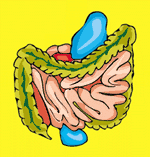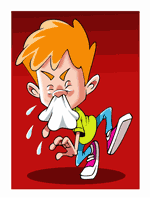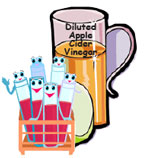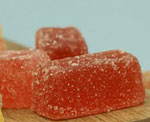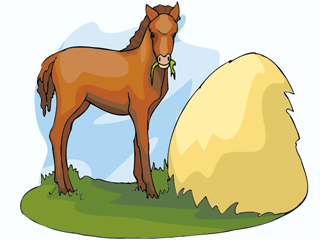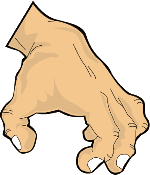Enteroliths
A Serious Cause of Horse Colic
Enteroliths is derived from the Greek words 'entero' meaning intestinal, and 'lith' which
means stone.
There are many causes for colic, a general term for abdominal pain, in horses but
intestinal stones (enteroliths) is one of the most serious because the large ones can
cause fatal blockages unless surgically removed.
These stones can also cause
intermittent colic because they can move and periodically obstruct passage of feed
through the bowel.
Analysis of these deposits indicate that they are made up of a crystalline material called
struvite which contains magnesium, ammonium, and phosphate.
The enteroliths form around a small foreign object swallowed by the horse such as a
pebble, sand, wood, or plastic, and grow much like a pearl grows around a grain of sand
in an oyster. To continue growing, the enterolith needs a supply of magnesium,
ammonium, and phosphate as well as a relatively alkaline digestive tract.
Preventive measures for Enteroliths
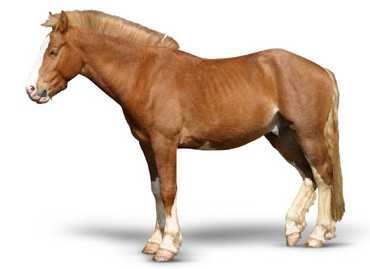
To help prevent enteroliths from forming, researchers at UC Davis School of Veterinary
Medicine suggest that you:
- Decrease intestinal pH levels by adding one cup (250 ml) of vinegar a day to your horses diet. (unpasteurized organic apple cider vinegar would do fine)
- Adding more grain while reducing hay will also decrease the pH level in the colon.
- Reduce or eliminate bran from your horses diet since bran provides high levels of phosphorus.
- Replace much of the alfalfa hay in your horses diet with oat or grass hay. Alfalfa, especially alfalfa from California, contains high amounts of magnesium and protein. An excessive amount of free ammonium may be released from the digestion of high protein hay like alfalfa. (At UC Davis it was found that most of the horses with enteroliths had a diet of 50% alfalfa hay!)
- Increase feeding times to three or four times a day since this will increase the movement of bulk feed material through the intestinal tract which should provide a less favorable environment for stones to incubate and grow.
- Avoid long stall confinement and provide lots of daily exercise which also helps increase intestinal movement of feed.
- For bedding, use straw instead of shavings. The straw will provide a high fiber material to nibble on which is low in protein and magnesium and phosphorus minerals.
References:
Diana M. Hassel DVM - Gastroenterology Lab - Equine Enterolithiasis
UC Davis CEH - The Horse Report Helpful Tips - 16:1, March 1998.

